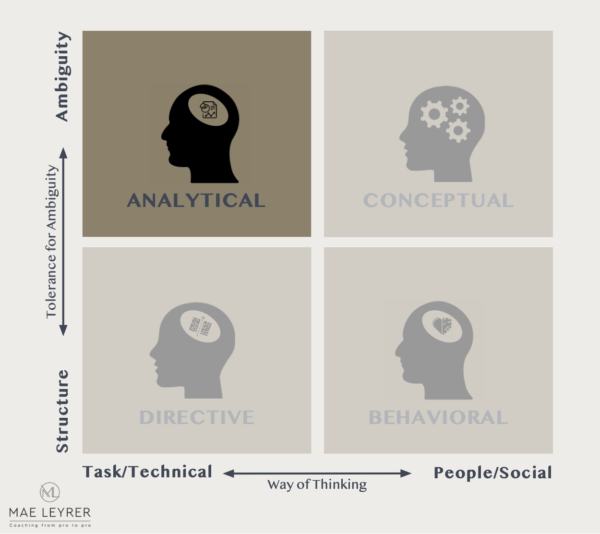Continues …
The analytical decision-making style is also known as consultative decision-making, or integrative decision-making. It finds its spot in the upper left-hand corner of the decision-making dimensions plane.

How to recognize?
Quick decision making is not your friend. You need to weigh in all possibilities and gather as much information as possible before making a choice. This does not include only data. It encompasses opinions, observations, facts and experiences – anything that adds value. You take your time and assure that all information is gathered before final decision-making. Creativity in the entire process, as well as in solutions is natural to you. Black-and-white answers are not prerequisite, and you are happily considering many potential solutions.
Key characteristics
Takes time – as long as is necessary to feel comfortable and to make the best decision
Gathers a lot of information and is comfortable with it
Views problem solving as creative and fun without the dire need to have black-and-white answers
Great for
Situations that benefit from many different perspectives and could have multiple right answers
Situations that benefit from gathering information from a wide variety of sources
Challenging when
A decision needs to be made quickly
Information is not available and gut feeling is required
Communication with others is crucial
Stress is not managed (analytical decision-making style brings along substantial stress in the process, which needs to be carefully managed)
Example
Will is planning a strategy workshop. He starts the planning process early assuring that the event shall have the best possible structure and is hosted in the best suitable place. He kicks the process off by asking all team members for their opinion on the topics. Gets input from other leaders in his network who recently hosted strategy workshops. He spends a day on online research looking into advice from experts and journals related to strategy workshops. Based on this information, Will pulls together tentative plan and shares it for one more feedback round with the team. Will incorporates feedback into initial draft and will proceed with next steps.
Next blog will deep dive into conceptual decision-making style. Check for it in the next few days. If you prefer to be informed when it’s up, then sign-up to the blog below (in the page footer). Please note, that if you sign up, your e-mail address is used strictly ONLY to inform of next blog posting. No marketing, no sales, no use of it for any other purpose. Just simple note when new post is up.
To be continued …